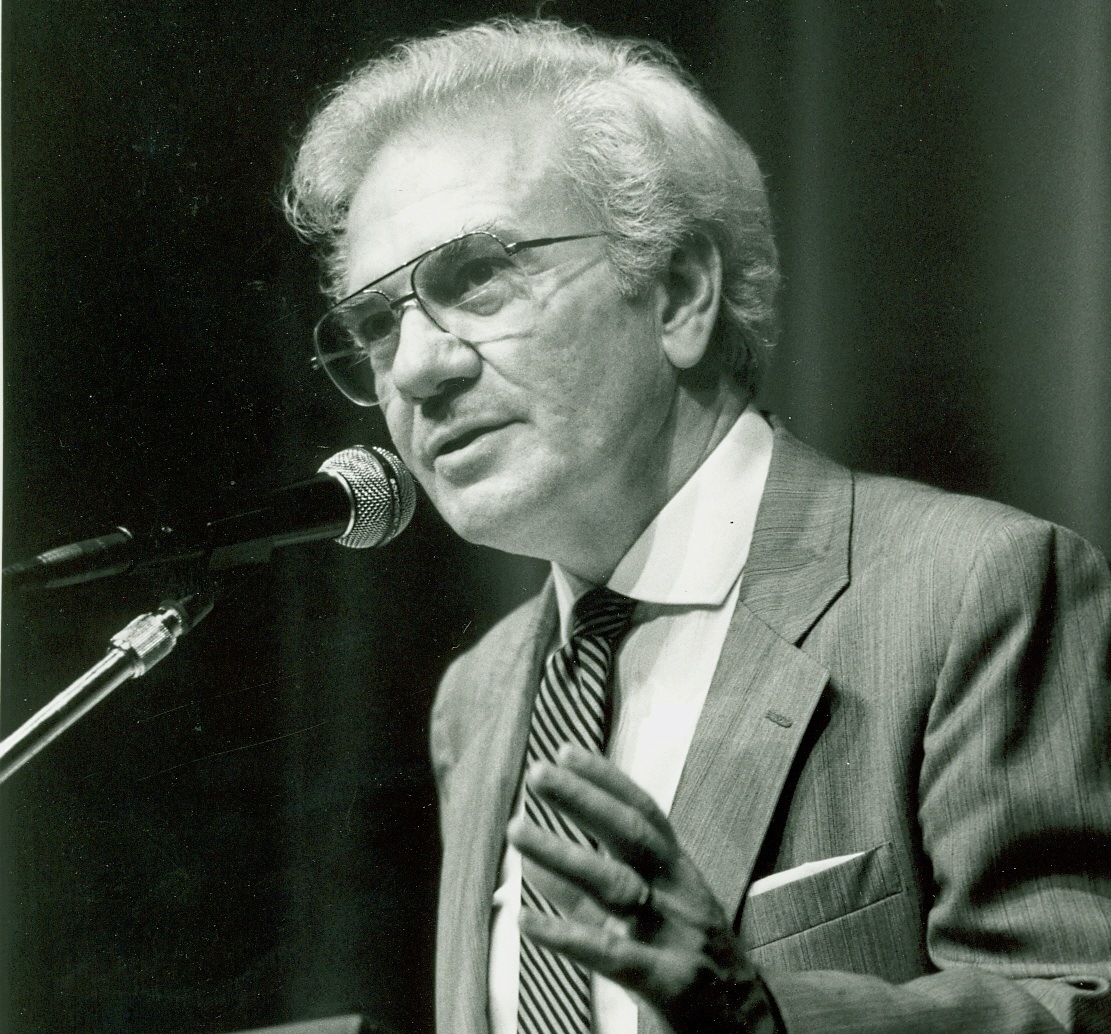This video from the Huntington Library answers the question for us. Great work they are doing!
[vimeo]http://vimeo.com/93162129[/vimeo]Archives
Access to the Archives: Scholarship Reconsidered
Want to know what we’re currently working on in the Boyer Archives? These seven boxes contain the countless manuscripts and final printing proofs of the Carnegie Foundation Report, Scholarship Reconsidered. Each box is in a different stage of the cataloging and digitizing process and will be available to researchers online soon. So, if you’re interested in reading the very first version of this report and then the final version – stay tuned!
Researching From Home
Did you know that you can conduct research on Ernest Boyer from the comfort of your own home? Yes, it’s true! While we love hosting researchers in the archives on campus, we understand that for some people it is not feasible nor altogether necessary to travel to Messiah College. That’s why over the past two years the Ernest L. Boyer Center Archives has made a major push to digitize its collection and make resources more accessible to researchers online. While there is still a lot of work to be done and plenty of materials left to be scanned, major achievements have been made. This post is to help walk you through the steps of researching the work of Ernest Boyer via the web.
To begin your research go to the Ernest L. Boyer Center Archives homepage. Once there, click on “search the catalog.” Once there, enter relevant search terms or keywords you hope to find in the collection.
The picture to the left is a screenshot of archival record #1000 0000 0038. As you can see, the information available to researchers are as follows: catalog number, object name, the scope and content of the record, the date, the event this record is related to, collection, people, related search terms, and multimedia. For those researching at home, the multimedia field will be the most useful. Our goal is to give researchers the ability to read the exact drafts of speeches, manuscripts, articles, and other resources of that nature on their own computer screens. So, if the PDF version of a document is available to researchers the last field will have a hyperlink, directing you to “click here” (see picture below).
Clicking on the hyperlink will direct you to the PDF version of a speech Dr. Boyer delivered on June 6, 1984, upon receiving the Distinguished Fellow Award of the Academy of Educational Development (AED). You’ll notice that the speech is handwritten, so you can read (or try to read) the words Boyer actually wrote.
So, what are you waiting for? Happy researching!
Hello world!
Question for you. Are you familiar with the life and work of Dr. Ernest L. Boyer? If you answered yes, congratulations! If no, then that’s why we are here.
This blog will serve as the voice for the Ernest L. Boyer Center Archives of Messiah College. Currently the archives contains over 480 linear feet of manuscripts, audio and visual materials, correspondence, speeches, and other materials documenting the life and work of Dr. Boyer.
So who was he and why should you care?
Dr. Boyer was a pioneer in the world of American education in the 20th century. He most notably served as the United States Commissioner of Education under President Jimmy Carter, and then went on to lead the Carnegie Foundation for the Advancement of Teaching (CFAT) as their president from 1979-1995. At the time of his death, in 1995, his colleague, Samuel G. Sava, called him the “foremost educator of our time.”
Since Dr. Boyer’s education began at a small two-year bible college in central Pennsylvania, his family thought it right to donate his personal library and archives to Messiah College. In 1998, the Ernest L. Boyer Center was established at Messiah College to promote learning, advance scholarship, foster community, engage society, and educate “servant leaders” – goals Dr. Boyer held close to his heart throughout his whole career. The Boyer Archives is a large facility to help ensure these realities in American education.
The Ernest L. Boyer Center Archives is a great resource for students and scholars alike in the field of education. Currently the archival staff is working to promote the work and legacy of Dr. Boyer by cataloging and digitizing its holdings and then making materials available for researchers online.
Interested in learning more about Dr. Boyer and how his work continues in the 21st century? Stick with us.



